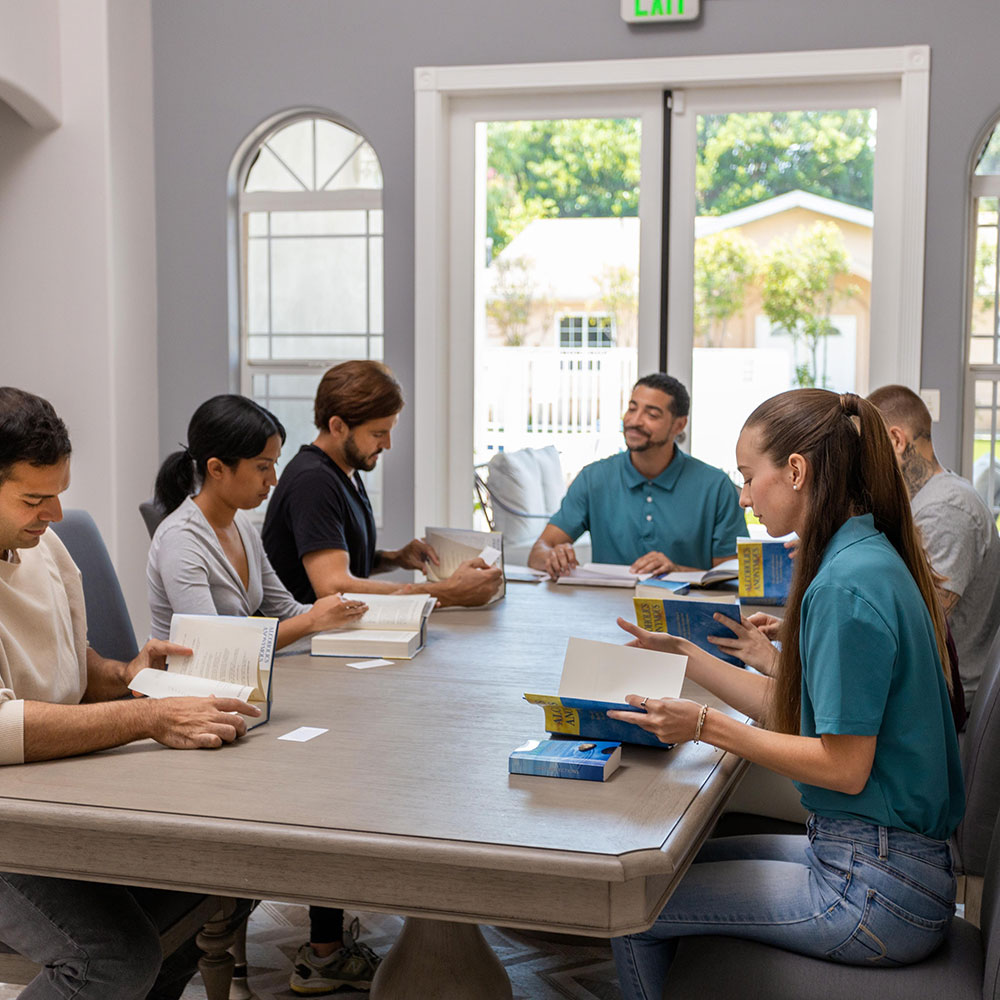Here are several ways we can help:
Daily Program Schedule
The main type of alcohol or drug addiction treatment is residential. Regardless of the form of the treatment program, the National Institute on Drug Abuse (NIDA) advises that patients actively participate in treatment for a period of at least 90 days. Residential (inpatient) addiction treatment programs are designed to provide a structured, supportive, stable, and encouraging environment for patients to recover physically and mentally. Our daily program schedule includes group healing meetings so that you can ignite your path to recovery.

Residential Treatment
Also known as inpatient treatment, residential treatment allows patients to focus on getting well and staying sober without the distractions of everyday life. These programs usually run anywhere from 21 to 28 days. A typical day in a residential treatment program is structured and scheduled. Psychiatrists, counselors, and psychologists may meet with residents (patients) individually or in group settings to guide them through recovery.

Continuum of Care
Also known as a dual diagnosis or dual disorder, a co-occurring disorder means that a patient is dealing with a substance use disorder and another mood-, anxiety-, or mental-related disorder. Below is a list of conditions that a patient with a co-occurring disorder may need to treat:
- Schizophrenia
- Bipolar disorder
- Depression
- Dysthymia
- Post-traumatic stress disorder
- Generalized anxiety disorder
- Panic disorder
- Social anxiety
- Obsessive-compulsive disorder
Today, addiction problems and mental health disorders can no longer be treated separately. Patients stand a better chance of recovery through an integrated approach. For any clarifications about Spark To Recovery programs, feel free to contact us today.
Co-Occurring Disorders
Also known as a dual diagnosis or dual disorder, a co-occurring disorder means that a patient is dealing with a substance use disorder and another mood-, anxiety-, or mental-related disorder. Below is a list of conditions that a patient with a co-occurring disorder may need to treat:
- Schizophrenia
- Bipolar disorder
- Depression
- Dysthymia
- Post-traumatic stress disorder
- Generalized anxiety disorder
- Panic disorder
- Social anxiety
- Obsessive-compulsive disorder
Today, addiction problems and mental health disorders can no longer be treated separately. Patients stand a better chance of recovery through an integrated approach. For any clarifications about Spark To Recovery programs, feel free to contact us today.